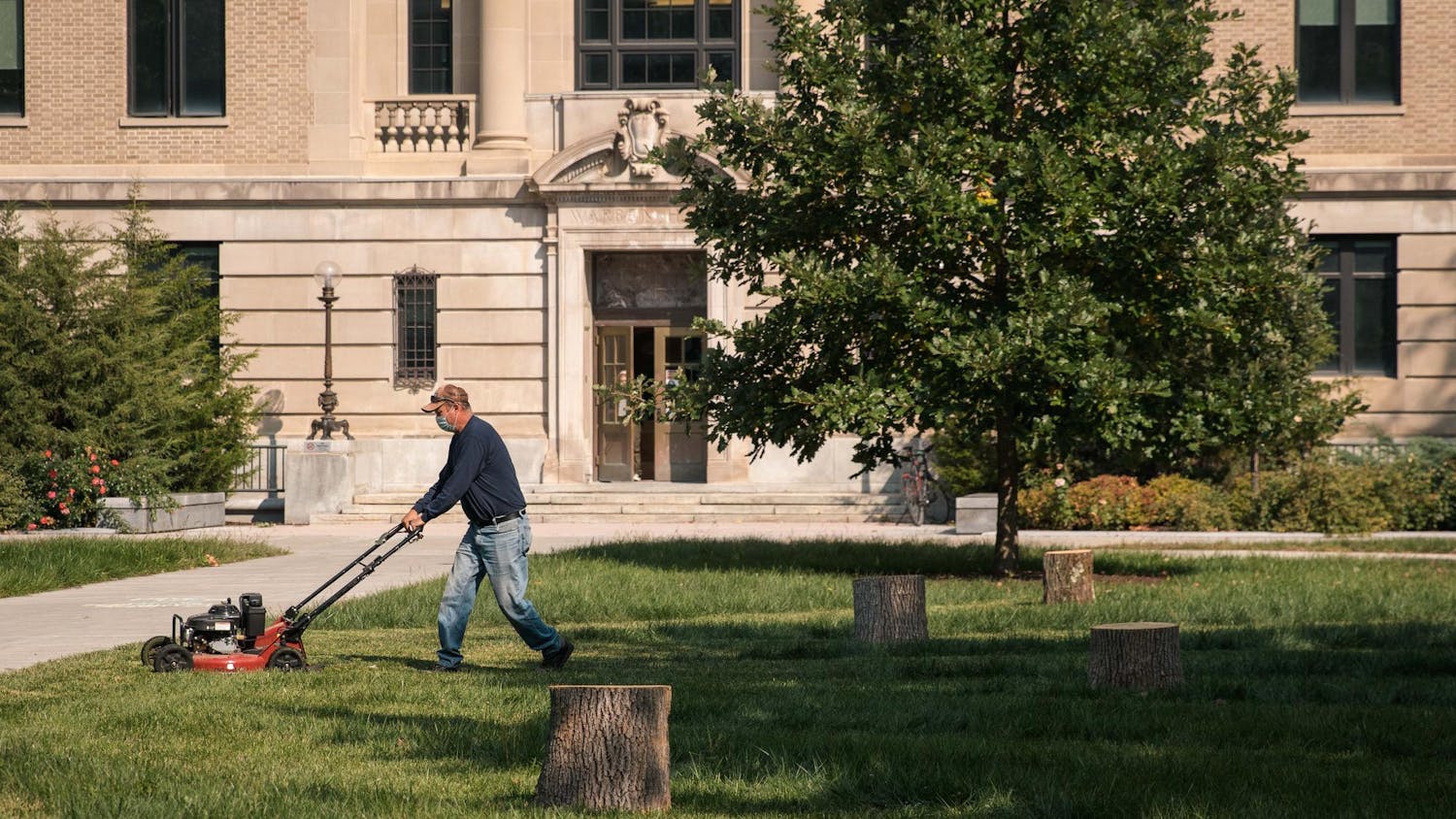Tompkins County has kept COVID-19 numbers relatively low with 229 total cases so far. But that could change in the fall as Cornellians return to campus.
Many local residents are concerned that Cornell’s projected 1,200 additional cases could put the region’s COVID-19 recovery in jeopardy. As a result, Riparia Bornstein and other organizers started the Redirect Cornell campaign. demanding that the University account for its effect on the region’s public health.
The group’s demands to the Cornell administration include investment in regional public health infrastructure and free COVID-19 testing for everyone in the region, including but not limited to Ithaca. Additional demands include no layoffs for Cornell staff, transparent communication with local legislators and regular communication from Ithaca and Tompkins County officials to the Ithaca and Tompkins community.
The group’s recent tactics include multiplepetitions, letters and a protest outside of Day Hall.
Assemblymember Barbara Lifton (D-N.Y.) also sent questions about Cornell’s reopening plan and its implications for surrounding region’s safety and institutions from concerned constituents to Cornell.
President Martha E. Pollack responded to Lifton in a letter on July 23rd, disagreeing with the idea that Cornell’s reopening would overwhelm local health resources, the Ithaca Journal reported.
“Cornell, Cayuga Medical Center, and the Tompkins County Health Department have been in regular contact about the potential impact of Cornell’s reopening on the ability of our local health delivery systems to provide medical care to our community,” Pollack wrote.
While Pollack did not specify how Cornell would financially support local institutions, she wrote that “representatives from Cayuga Health, the Tompkins County Health Department, Cornell leadership and municipal leadership have been meeting regularly to discuss how to meet increased demand for services.”
Cornell did not respond to a request for comment by the time of publication.
Bornstein, a Redirect Cornell organizer, said that the ideal reopening plan would be entirely virtual classes, with on-campus housing only open to students with precarious home situations. In order for less students to move back to Ithaca, he added that Cornell could pay students' rent to off-campus landlords and use its legal department to break leases.
Bornstein also believed that Cornell could convert University-owned fraternity houses into clinics and that Cornell should provide free testing for people throughout the region.
“Cornell’s work goes beyond Tompkins County and so should public testing," Bornstein said.
Carol Bushberg, another concerned local resident, echoed Bornstein’s call for widely available free testing, saying that Cornell employees will fall ill and likely take COVID-19 back with them to their communities.
”A lot of the people who work in Ithaca are coming from Watkins Glen, Owego, Auburn [and] Syracuse,” Bushberg said. “People travel great distances to work here, and they are going to be taking the virus back to those little communities that are really under-resourced.”
Pollack promised in her letter to Lifton that “Cornell is paying for regular surveillance testing of its faculty, staff and students,” but made no mention of investing in testing for residents of the greater Ithaca area.
Many community members, including Ann Boehm, a Brooktondale resident, were upset that Cornell took so long to communicate its reopening plan to the public.
In her letter, Pollack reiterated the University’s original argument that if Cornell had online-only classes, Cornell would be less able to monitor student health and control student behavior, However, many residents disagreed with this argument.
“The administration keeps saying that they can’t keep students from returning to Ithaca if classes are online, or even know where they are, but I don’t see why they can’t,” said Eric Lerner, a former member of the Tompkins County Board of Representatives. “You have IP addresses, you have phone data, you can ask the students to say where they are. There are all sorts of things they could do.”
Prof. William Sonnenstuhl, industrial and labor relations, an Ithaca resident, worries for his and his wife’s safety in the event there is a COVID-19 outbreak in the area.
“Despite all the testing they claim to be doing, we are not comfortable that an infected student won’t interact with and infect community members,” Sonnenstuhl said.
Some, including Sue Perlgut, are not convinced by the argument that reopening campus is vital for the struggling local economy, arguing that Cornell could provide financial support to local residents and institutions without bringing students back for hybrid classes.
“They should use that huge endowment of theirs to go online and help the economy they claim to want to help by opening in-person,” Perlgut said.
However, there are questions about whether tapping into the endowment is feasible, considering there are restrictions on using the endowment.
According to some Tompkins County residents, Cornell has not been sufficiently clear about the local infection rate at which the University would close its campus. Neighboring universities, like Syracuse University said there would need to be around 200 COVID-19 cases for campus to shut down.
“What are the metrics for Cornell shutting down again?” Perlgut said. “What will it take for Cornell to say ‘This isn’t working — go home?’ That question is asked again and again, and never answered.”

Tompkins County Residents Urge Cornell To Modify Reopening Plans
Reading time: about 5 minutes
Read More










